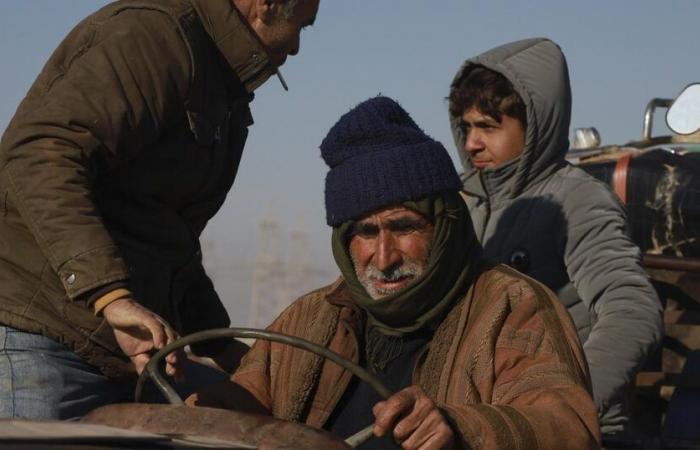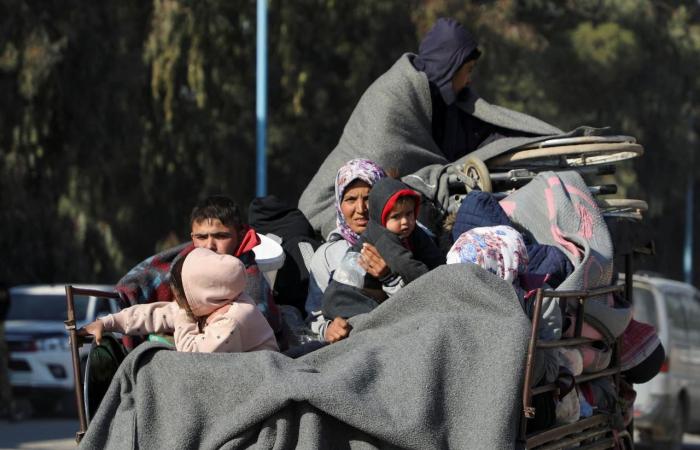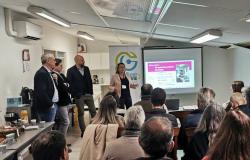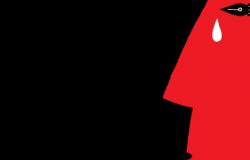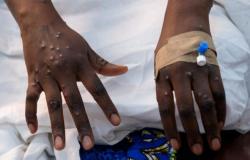Despite the fall of Bashar al-Assad’s regime, Syria remains deeply divided and populations are suffering a serious humanitarian crisis. In the north-east of the country, the Kurdish authorities, who control the territory, are overwhelmed by the surge of 100,000 displaced people who fled in haste, at the beginning of December, from around the city of Aleppo.
In early December, rebel groups affiliated with Turkey attacked Kurdish enclaves in Aleppo province, leading to massive displacements of populations in extreme conditions. Thousands of families have thus found refuge in Kobané – a city itself threatened by a large-scale offensive – or in Raqqa. The harsh winter and the war are weakening the humanitarian situation of these vulnerable populations, already displaced several times by conflicts.
In Kobane, pro-Turkish militias managed to almost completely surround the city. Violent fighting is currently taking place between these militias and Kurdish forces around a strategic axis which serves the city. At the same time, negotiations are underway in high places to try to curb Turkish ambitions and avoid a bloodbath.
External content
This external content cannot be displayed because it may collect personal data. To view this content you must authorize the category Infographics.
Accept More info
A three-day journey to Raqqa
Zinab found refuge with four of her children in the frozen locker rooms of the Raqqa stadium. The same place where ISIS tortured its victims when the terrorist organization ruled the city. The family huddles around a stove on a few mattresses placed on the floor. “The children don’t stop crying. My daughter keeps asking me: when will we be able to return home to Shahba? We wanted to save our lives, we heard that the Syrian National Army (ANS) was going to massacre women and children… that’s why we had to leave.”
Zinab painfully remembers the journey that brought her here. “We walked for three days, there was no gasoline. We couldn’t feed the children, there was no bread to give to the boys, no milk for the infants. It was very cold , there were no blankets, nothing to cover us. My son died on the road. His name was Nour and he was four and a half months old.
We feel like we’re not doing enough to meet their basic needs. Have you seen how cold it is this time of year?
Like Zinab, some 100,000 people fled in the space of three days towards territories administered by the Kurdish authorities. This situation took local NGOs and social services in the city of Raqqa by surprise.
Met in the courtyard of a school made available to displaced families, Sabah, in charge of reception since the first hours of the crisis, admits to being overwhelmed: “The number of displaced people is much higher than we think. The ten schools that we had initially requisitioned to accommodate them were not enough: today, we have opened 74 shelters. Our biggest challenge is the distribution of bread, blankets and mattresses. , of basic furniture We feel like we’re not doing enough to meet their basic needs Have you seen how cold it is this time of year? situation”.
Exile even further north
The saturation of reception spaces in Raqqa is pushing hundreds of families to continue their exile further north in desperate search of support.
Hamid’s family settled in Kobané in an abandoned car dealership and quickly became disillusioned, caught up in the war and without the slightest presence of NGOs.
“The threat posed by Turkey has led to the closure of the road, so prices have exploded. We have no money, we cannot buy food, only a little bread. We only eat bread. There are no medicines either, but our children need treatment… There is no water, no electricity, no fuel. We need NGOs.
At Kobané hospital, medical staff are well aware of the precariousness of displaced families. But for its director Hogger, it is impossible to help them while the war is at the gates of the city.
Each time, I was able to save my skin at the last moment
“We tried to open an emergency medical center in the camp, but we did not expect the region to become a conflict zone. Because of the fighting, available medical personnel were mobilized to the line front to offer assistance to the injured.
Further away, plastic sheeting is set on fire to keep warm. Amina, barely 30 years old, her newborn in her arms, testifies to her exhaustion. This new move revives the traumas of the previous ones: “This is the third time that I have had to abandon everything and flee. We had to leave Aleppo for Afrin, because of the war, then leave Afrin for Shahba because of the persecutions of the Syrian National Army, and there we have just fled Chahba and the attacks of this same armed group Each time, I was able to save my skin at the last moment. I was pregnant during each of these escapes. printing for having breathed my last breath You know, my psychological state is below zero, I suffer from anxiety.
All these displaced Kurdish families recognize that this new forced exile is by far the worst they have had to endure so far.
Radio report: Lucas Lazo
Adaptation web. France-Anne Landry

